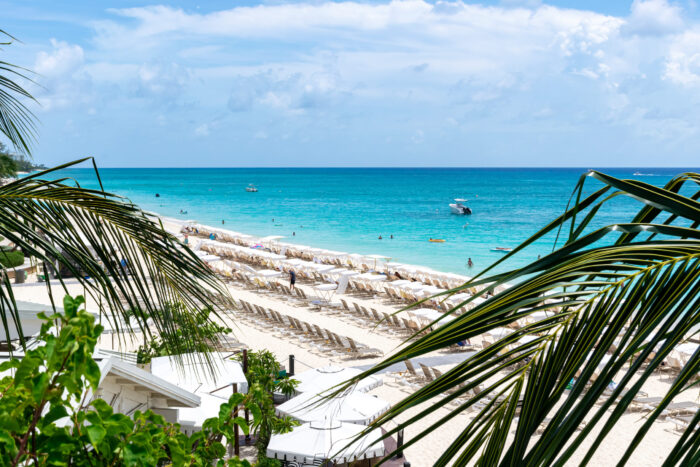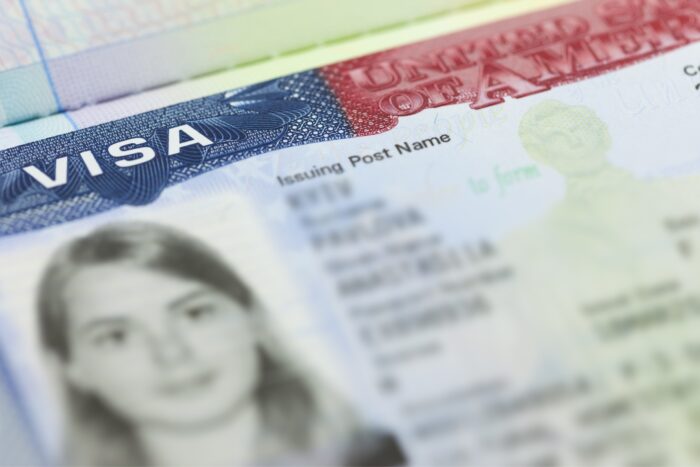Na carta enviada ao presidente dos EUA; Barack Obama; os CEOs de empresas americanas e organizações de viagens elogiam o progresso entre o comércio entre os países. E sobre sua recente missão na América do Sul; os CEOs falam da necessidade se algo ser feito para ajudar Brasil e Chile a cumprir os requisitos para o Visa Waiver Program (VWP). Para a indústria dos EUA de viagens e turismo; a isenção de visto entre as nações é uma prioridade nacional e uma urgência econômica; disseram os empresários.
Eles ainda falam dos benefícios que a isenção do visto significaria em questões econômicas e turísticas. “A entrada do Brasil e Chile no VWP pode dinamizar a economia dos EUA por permitir que os EUA a dupla de visitação desses países com maior rapidez; assim gerando US$ 10;3 bilhões em receitas de exportação e de apoio 95.100 empregos nos EUA”. Além de seus benefícios econômicos; o VWP serve como uma ferramenta importante da diplomacia pública.
Em 2009; o brasileiro gastou US $ 3;6 bilhão aqui; uma média de 5.114 dólares por visitante. Embora o número total de brasileiros que viajam para os EUA tenha melhorado nos últimos anos; os EUA participam de viagens de longa distância total de saída do Brasil está 15% abaixo a sua quota de 2000. “A formalização de uma discussão com o Brasil ou o Chile sobre o VWP seria um sinal de boas-vindas que os EUA entendem o valor do aumento das viagens bilaterais com os aliados na América do Sul”.
Durante sua visita; Obama disse: “há algum trabalho feito sobre a prorrogação de vistos para ambos os países; e embora não tenhamos conseguido tudo o que trabalhou com; estamos a fazer progressos; e continuará a fazê-lo”; se referindo ao Brasil. Finalizando; os CEOs agradeceram a iniciativa do presidente na realização de sua visita a América do Sul e dizem estar anciosos para trabalharem juntos em cima dessa questão do visto e de outras.
Veja abaixo a carta na íntegra enviada ao presidente Obama (em inglês):
March 31; 2011
President Barack Obama The White House
1600 Pennsylvania Avenue
Washington; D.C. 20500
Dear Mr. President:
As CEOs of American firms and travel organizations that serve inbound international visitors to the United States; we write regarding your recent mission to South America. We commend your team’s progress on trade and economic cooperation; as well as on an open skies agreement with Brazil and we are particularly encouraged by your statement that additional progress will continue to be made to help Brazil and Chile meet the requirements for the Visa Waiver Program (VWP). For the U.S. travel and tourism industry; visa-free travel between our nation and these two countries is an urgent national economic priority.
We know that Brazil and Chile do not qualify for VWP status today and we fully appreciate the strict national security rationale for this process. Yet; both Brazil and Chile are close to meeting the visa refusal rate requirement to enter the program; making them prime candidates for formal VWP discussions – just as the U.S. has established with more than a dozen countries in the past – in order to ensure progress in this area is taking place. That is precisely why we request that as a follow-up to your meetings in Brazil and Chile; you direct the development of formal working groups with Brazil and Chile on the VWP.
In 2009; the United States welcomed 15.7 million visitors from the 36 countries that currently qualify for visa-free travel – two-thirds of all overseas visitors. While here; they spent nearly $57 billion across 20 travel-related industries; including lodging; dining and transportation; supporting 492;000 American jobs and generating $8.4 billion in government tax revenue. But when you look at our performance compared to the global travel market; it is clear that we are failing to meet our potential.
Allowing visa-free travel for Brazil and Chile in the coming years would yield significant economic benefits for the United States at a time when the jobless rate remains close to 9 percent and recovery remains in a fragile state. Entrance of Brazil and Chile into the VWP would energize the U.S. economy by allowing the U.S. to double visitation from these countries more quickly; thus generating $10.3 billion in export revenues and supporting 95;100 American jobs. Brazil; with a population of nearly 200 million people and a gross domestic product exceeding a trillion dollars; represents a particularly ripe market for travel to the U.S. In 2009; Brazilians spent $3.6 billion here; an average of $5;114 per visitor. While the total number of Brazilians traveling to the U.S. has improved in recent years; the U.S. share of total long-haul outbound travel from Brazil is 15% below its 2000 share.
In addition to its economic benefits; the VWP serves as an important public diplomacy tool; exposing foreign visitors to the attractions and values of America’s heartland. Study after study has shown that foreign nationals who visit the U.S. return home with a far more positive view of our nation and policies. Unfortunately not one country in South America is currently a member of the VWP. Formalizing a discussion with Brazil or Chile about the VWP would be a welcome sign that the U.S. understands the value of increased bilateral travel with allies in South America.
Demand to visit the U.S. is clearly present; but visa processing resources are not keeping up with demand; which places the U.S. at a competitive disadvantage. Currently; thousands of Brazilians applying for a U.S. visa in Rio de Janeiro or São Paulo must wait approximately three months for a visa interview. Beyond the delay in getting a visa interview; millions of potential visitors in Brazil do not live in a city with a U.S. Consulate and therefore must travel hundreds; if not thousands; of miles to apply for a U.S. visa. The cost; planning and effort associated with traveling hundreds of miles to the nearest U.S. Consulate acts as an additional deterrent for legitimate travelers seeking to visit the U.S. Meanwhile; our competitors for travel business – all of South America; the European Union; Russia and New Zealand — provide Brazilian and Chilean citizens visa-free privileges for short-term visits.
We were very pleased that you took time during your public remarks in South America to focus on visa policies. While in Chile on March 21; you said that enhanced travel between our two countries “would strengthen the ties that already unite us” and that the United States “will keep working with Chile’s government to satisfy some of the requirements to enter into the [Visa Waiver] program.”
Likewise; you stated in Brazil on March 19 that “there’s been some work done on extending visas for both countries; and although we haven’t gotten all that worked through; we are making progress; and will continue to do so.”
On that occasion; you also observed that “the true potential of our partnership will only be realized by forging relationships between our people – between business leaders; entrepreneurs; scientists; engineers; teachers; students and more than one million citizens who travel to the U.S. and Brazil every year.”
We agree wholeheartedly. By encouraging greater inbound international travel to the United States – especially from friendly nations with pent-up demand like Brazil and Chile – we will support our global competitiveness by creating American jobs that cannot be outsourced. We fully understand the strict criteria that govern entry into the VWP. In this context; we appreciate your endorsement of initiating a bilateral discussion with Brazil and Chile and encourage a formal framework that will demonstrate measurable progress toward this joint objective.
Thank you again for your initiative in undertaking your South America visit; demonstrating once again your commitment to the impact of face-to-face meetings. We look forward to working closely with you in the months ahead on th
is and other issues.
Respectfully;
Our Nation’s Leading Businesses








